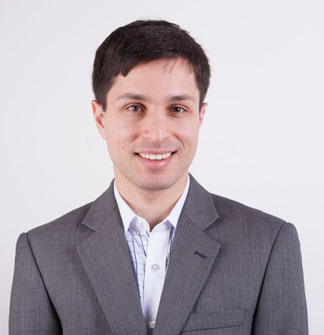
Josh Patlik is a second year law student at York University in Toronto. He is also a person who stutters. Josh recently met with a class of SLP graduate students at the University of Toronto for a conversation about his experiences, his perspectives, and his life as a stutterer.
Gaining better understanding
Students studying to become Speech-Language Pathologists (SLP) in Canada only need to take one course in fluency disorders. SLP students often don’t have the opportunity to meet people who stutter outside of a therapy setting for a deeper, more meaningful conversation. The Canadian Stuttering Association (CSA) is trying to change that.
The CSA introduced Josh to Dr. Luc De Nil, who teaches the fluency disorders course at the University of Toronto. On February 18th, Josh spoke with Dr. De Nil’s class about his experiences growing up with a stutter, receiving speech therapy, and how stuttering has affected his professional and personal life thus far.
“Josh did a splendid job,” said De Nil. “The feedback I have received from the students so far has been very appreciative of his willingness to come and speak to them.”
Most of Josh’s time was spent answering questions from students. “The students were quite engaged, and even graciously indulged my attempts at humour,” Josh said.
A valuable experience for SLP students
Students gained insight into how clients may experience stuttering and speech therapyStudents told Josh that the experience was valuable, and that it offered insight into how clients may experience stuttering and speech therapy. “I was really touched by the thank you cards I received – they were further evidence of a real warmth and appreciation that I felt from the class from the moment I stepped up to the front to speak.”
“Josh represents the reason so many of us came to the program – to work with people and make a difference,” said Erin Gilchrist, SLP student. “Hearing from people like Josh inspires and motivates us.”
For Josh, the most rewarding aspects of the experience were contributing to the profession of SLP, gaining experience and confidence in public speaking, and self-validation. “It has sometimes been hard to love myself. But talking about myself for twenty minutes showed me that I am indeed worth other people’s time. I’m just as valuable as anybody else.”
An opportunity to share
The CSA is currently offering opportunities for people who stutter to meet with graduate-level SLP classes. “Speakers should be prepared to talk openly about how their stuttering and therapy experiences affects them – because that’s what most students need to know and want to hear,” says Andrew Harding, CSA National Coordinator. “It’s a great confidence boost, and helps future therapists to understand stuttering better.”
There are currently eleven SLP graduate programs in cities across Canada. If you are interested in sharing your experiences and informing future clinicians, please contact K. Casey Kennedy at kcaseykennedy@gmail.com.
K. Casey Kennedy is a person who stutters, and the SLP Liaison with the Canadian Stuttering Association. He is a 3rd year SLP graduate student studying at Dalhousie University, and is currently finishing his final clinical externship at the Institute for Stuttering Treatment and Research (ISTAR) in Edmonton.